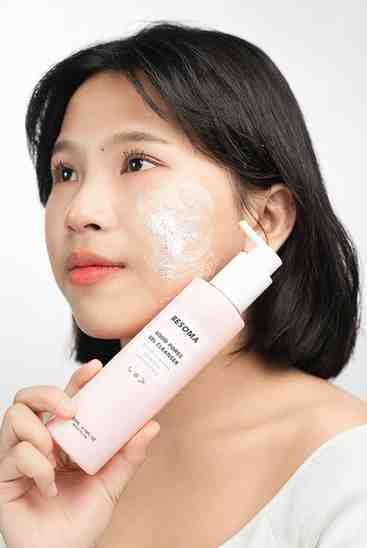Can Hyaluronic Acid Help with Dry Skin
Today we will talk about Most Asked Question Can Hyaluronic Acid Help with Dry Skin? Dry skin which is prone to persistence and irritation, tends to push up individuals’ desire to find the source of their problem through the help of skincare remedies. In recent years, since the introduction of hyaluronic acid as an ingredient, its effectiveness has been widely noticed and thus, its popularity has been rising as a go-to approach for handling dryness of the skin and enhancing general skin health. In this article, we will investigate the role of hyaluronic acid in skincare and its efficacy in ameliorating dry skin problems.
Introduction
Complimented by the physical functions and the self-image it creates, healthy skin should not be neglected. Very dry, yet tight and prone to flaking of skin may also have adverse effects on one’s daily tasks and may interfere with quality of life. Luckily, skincare science progresses and hyaluronic acid becomes one of the most popular ingredients that have spectacular results beating the aridity of the skin.
Understanding Dry Skin
The skin loses its oils and water very frequently. This disrupts the skin’s usual oily external layer that keeps the skin barrier intact. Variables such as the surroundings, the genes of a person, and how they lead their lives can cause dry skin. When not treated, dry skin may evolve into even more severe diseases like eczema or dermatitis, thus, worsening apparent aging symptoms such as wrinkles and lines.
What is Hyaluronic Acid?
Hyaluronic acid is natively present in human and animal skin, and connective tissues, as well as inside the eyes in the form of a gel-like substance. It may sound a little like one of the favorite exfoliating acids like glycolic or salicylic acid; but, hyaluronic is nothing but that. Conversely, another major difference between synovial and cartilaginous tissues is glycosaminoglycan molecules. Expansively, they aid in the water retention process, so they have a streamlined effect on moist tissues.
Mechanism of Action
The property of hyaluronic acid to hold moisture is defined by its molecular structure component which contains an ability to retain up to 1000 times its weight of water. Whenever applied over the skin’s surface or produced on the inside of the body, the acid becomes a hydrating skin barrier that prevents loss of moisture and restores the skin’s suppleness. Additionally, hyaluronic acid also takes part in the tissue repair and regeneration process which ensures the skin barrier intactness.
Impact of Hyaluronic Acid on Dry Skin
Hyaluronic acid offers several potential benefits for individuals with dry skin:
- Moisture retention and hydration: In this way, hyaluronic acid will trap and bind water molecules thus providing the skin with necessary moisture resulting in a well-moisturized and soft skin.
- Improving skin elasticity and firmness: When hyaluronic acid is utilized regularly, the skin texture becomes further enhanced with more elasticity and a radiant complexion, diminishing the presence of even the finest lines and deep wrinkles that are connected with aging.
- Soothing dry and irritated skin: In addition to promoting moisturization, hyaluronic acid is an anti-inflammatory component that helps in the treatment of poor, scaly, or irritated skin conditions.
Clinical Evidence and Studies
Many research studies in this field have shown that hyaluronic acid is effective in improving the skin not only by hydrating and rejuvenating the skin but also by providing a plumper look. Datings from clinical trials have shown increased moisture levels, elasticity as well as the appearance of skin following the application of products that are hyaluronic acid-based.
Different Forms of Hyaluronic Acid
Hyaluronic acid is available in various formulations to suit different skincare needs:
- Serums: Having low molecular weight and fast absorption characteristics, hyaluronic acid serums easily deliver dense moistness to the skin, which however, does not mean the serums should not be blended with moisturizers and other skincare products to achieve the desired look.
- Creams and moisturizers: Hyaluronic acid spiked creams and moisturizers offer deep hydration and shielding from the elements, to help maintain the moisture ingoing and outgoing water during the day.
- Oral supplements: Several people may choose to avail of such products that provide hyaluronic acid supplements taken orally to generally support skin health from within, but this delivery way has raised some concerns accordingly.
Hyaluronic Acid into Skincare- How to Do This
To reap the benefits of hyaluronic acid for dry skin, consider the following tips:
- Choose the right products: Make sure that these skincare products continue to penetrate deep into the skin by including them as an active ingredient of hyaluronic acid.
- Application methods and frequency: This will help the hyaluronic acid serums or creams to thoroughly penetrate damp skin, either by gentle pat-drying or massaging until it is completely absorbed. Apart from cleansing, applying the serum in the morning and night is recommended, then following it with a hydrating until your skin looks glowing.
- There is a need to mix hyaluronic acid with other skin ingredients:Hyaluronic acid can be combined with other skincare ingredients to enhance its effectiveness:
- Synergistic effects with moisturizing agents: Consequently, ingredients like glycerin, ceramide, and natural oils combine to enhance the moisture-retaining ability of the skin hence, providing more nourishment and repair of the outer skin layer.
- ** Interactions with these other skincare products:** Interaction might precipitate additional reaction products. Therefore, be cautious if using hyaluronic acid along with an exfoliating acid or retinoid so that these should not aggravate the skin barrier.

Special Considerations
While hyaluronic acid is generally well-tolerated by most skin types, individuals with certain conditions or sensitivities should proceed with caution:
- Skin types suitable for hyaluronic acid: Without any exception, Hyaluronic acid is the best natural moisturizer that fits all skin types in the universe; for instance, it has been documented to moisturize sensitive, dry, oily, and combination skin. Nevertheless, those with super dry or impaired skin types could be advised to see a dermatologist first before making a hyaluronic acid application a part of their regular skin-care routine.
- Potential side effects and precautions: However, hyaluronic acid may infrequently lead to allergies or skin irritations, which could happen with the high concentration of hyaluronic acid product or with the combination of it with some other active ingredients. To avoid any reaction to new HA products, do a patch test before application and stop using the product in case negative reactions take place.
Real-Life Experiences and Testimonials
Many individuals have shared their positive experiences with hyaluronic acid for dry skin:
“I used to have very dry and flaky skin for age, and it was a serious problem for me. But I found a perfect remedy to this problem, and that is hyaluronic acid – I now have hydrated, healthy, and strong skin.”
- Jenna, 32
Hyaluronic acid facial products that have been tested by raving customer reviews consistently state that they have firmed up their skin texture, improved moisture levels, and boosted radiance.
Myths and Misconceptions
Despite its popularity, hyaluronic acid is sometimes subject to myths and misconceptions:
- Debunking common misconceptions about hyaluronic acid: In contradiction to a common myth, hyaluronic acid is not ” a moisture sucker from the air” but one that is pulling the water which is already present in the skin. Hyaluronic acid has also proven to be a universal molecule accommodating all skin types from oily to acne-prone skin due to its non-comedogenic and light texture.
Professional Recommendations and Tips
Dermatologists and skincare experts offer valuable advice for incorporating hyaluronic acid into your skincare routine
The way to begin this is to use the hyaluronic acid serums or moisturizers slowly, particularly if you are susceptible to skin reactions. Watch how your skin adjusts itself and adapts it well so that you do not end up over-hydrated or irritated.
Dr. Michelle Lee, MD, is an internationally recognized, board-certified dermatologist, who provides general, procedures, and cosmetic dermatology.
Conclusion
Hyaluronic acid demonstrates tremendous potential in the sphere of skincare ingredients to guard against dry skin and improve general healthy condition of the skin. Its capacity to keep moisture, improve stretchiness, and re-dress etches and imperfections make it a pillar of any skincare regime. Through the knowledge of its modes of activity, the correct product selection process, and by following the guidelines of professionals, individuals are equipped with the ability to use hyaluronic acid to improve their skin quality. Also follow us on medium.
FaQs About Can Hyaluronic Acid Help with Dry Skin:
Is hyaluronic acid suitable for all skin types?
However, HA is compatible with all skin regimes, which include both dry, oily, and combination skin as well as the sensitive ones. It doesn’t contribute to acne-like redness and it is kept from the components of the skin and does not irritate.
How does hyaluronic acid benefit dry skin?
Hyaluronic acid helps because of skin extinction the water by binding and retaining moisture, therefore the skin is getting hydration and improvement of elasticity.
Can hyaluronic acid cause skin irritation?
However, although rarely occurs, some users may have allergic reactions, skin irritation, even hives, if these health conditions are among those related to the increased skin tenderness or certain components. It is significantly essential to perform a patch test while using skincare products incorporating hyaluronic acid.
What is the best way to incorporate hyaluronic acid into my skincare routine?
Adding hyaluronic acid to your routine can easily be done with the use of serums, creams, or moisturizers with active hyaluronic acid. Incorporate moisturizers with hyaluronic acid into the daily skincare routine, applied to well moisturize damp skin and seal the effect with a moisture balm. Use morning or evening in order to achieve better results.
- Top 10 Moisturizers for Every Skin Type
- Top 6 Benefits of Primose Oil For Skin.
- Understanding Hair Porosity: Tests, Tips, and Care Routines
- Aloe Vera Hair Masks for Healthy and Beautiful Hair
- Natural Ways to Remove Sun Tan Fast
- How to Get Thick Hair: Simple Habits for Thicker, Longer Hair
- Is Jojoba Oil Good for Low Porosity Hair?
- Top 7 Skin Benefits of Batana Oil
- Natural Remedies for Clear Skin: Glow Naturally
- Rosehip Oil for Acne Scars: Does It Really Work?
- Almond Oil for Hair: Tips for Thicker Locks
- Top 10 Natural Remedies to Stop Hair Fall
- Benefits of Argan Oil for Long And Silky Hair
- How to Reduce Sunburn Redness Overnight
- How To Look Pretty In 5 Mins Without Makeup



















2 Comments